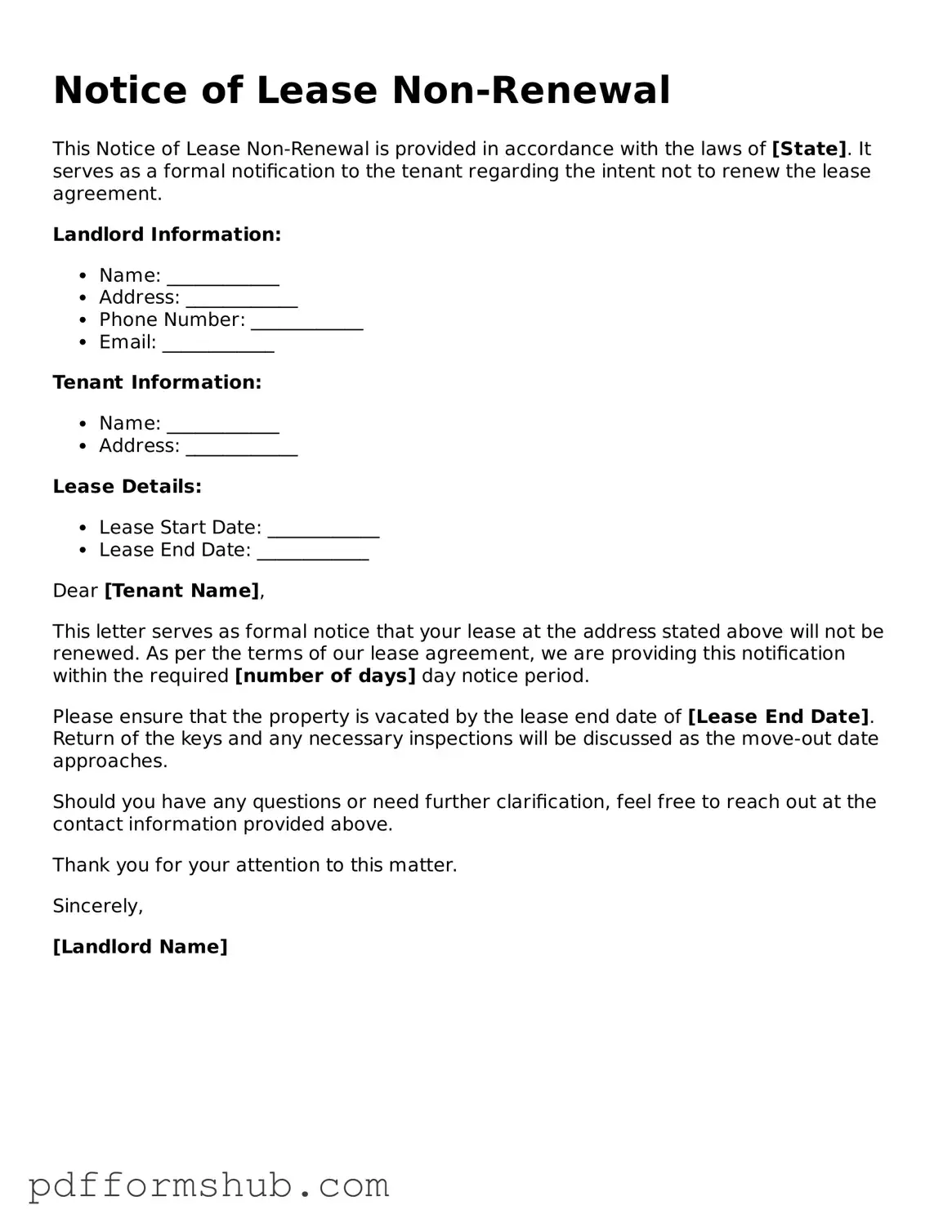Valid Notice of Lease Non-Renewal Form
The Notice of Lease Non-Renewal form is a document used by landlords to inform tenants that their lease will not be extended beyond its current term. This notice provides essential information regarding the end date of the lease and any necessary steps the tenant should take before moving out. To ensure a smooth transition, consider filling out the form by clicking the button below.
Customize Form

Valid Notice of Lease Non-Renewal Form
Customize Form

Customize Form
or
Free PDF Form
Short deadline? Complete this form now
Complete Notice of Lease Non-Renewal online without printing hassles.